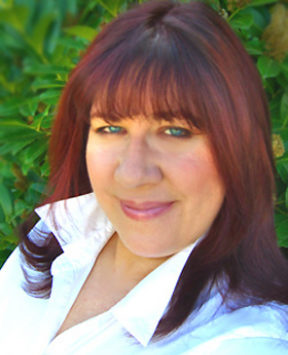As you know, the Web has a wealth of information at your fingertips, and all you need to know is how to find it. That is not always as easy as it sounds.
If youve ever used Google, youve likely only scratched the surface. People really love their Google for searching keywords, but it can do so much more, such as finding phone numbers and being a simple calculator.
One of Googles biggest fans is Nancy Blachman. She co-authored How to Do Everything with Google and runs the site GoogleGuide.com, which is chock full of some incredible, but little known features you can use in Google to make your online life a lot easier.
Nancy happily shared her advice on how to make surfing Google much more effective:
Q: You sure have a passion for Google. What is your connection with Google?
Blachman: I first learned about Google April of 1999 when a friend told me her site was listed highly on Google. I got more interested in it when my husband interviewed and started working for Google in 1999.
Q: What was the inspiration to co-author How to Do Everything with Google and what were you trying to do with the book?
Blachman: Jerry Peek, author of Unix Power Tools, gave me the idea of writing a book about using Google. I found the idea appealing because I was a fan of Google and was interested in learning how to use it better.
There were no other books about Google when I started writing, and with such a job, I could work flexible hours. I created the Website Google Guide (www.googleguide.com) and gave seminars on searching with Google to get feedback from users and make sure that I was developing material that users would find useful and engaging.
Q: Why do you think Google has reached such a high acceptance with users around the world?
Blachman: For many reasons! Google returns relevant results, its easy to use and fast and has a clean, simple interface.
They dont place sponsored link ads in its search results and distinguishes the sponsored links they do list as separate from search results.
Its easy to see what kind of page youll get because Google includes an excerpt or snippet of the text on the page in their search results. They even show an entry for a page even when its gone or its link is inaccessible. In particular, they continually improve its search results and capabilities.
Q: I was reading through the book and it really hit me how much Google has done for online search and all the cool tools and services Google has built that few know about. Can you share with us your list of favorite tools?
Blachman: My favorites include:
– Getting driving directions by entering a US address into Google and clicking on one of the links to a map provider. I even copy and paste addresses, even ones with embedded carriage returns.
– Looking up phone numbers. You can just enter a company or persons name and a city, state, or zip code in the standard Web search box.
– Finding a definition. If Google finds any dictionary definitions for your search terms, it shows those words as underlined links in the statistics bar section of the results page, which is located below the search box showing your query.
– When you include define, what is, or what are in your query in front of a word, phrase, or acronym, Google displays one glossary definition above your search results.
– In February 2003, Google acquired Pyra Labs, a company that makes it easy for you to create your own blog. If you are wondering what a blog is, then just ask Google to define the term define blog and it will return the definition a journal thats available on the Web.
– The Google Calculator isnt Mathematica but its free and may be good enough for your purposes. It can add up a list of numbers, convert from miles to kilometers, or evaluate some other mathematical expression. Simply enter the expression youd like evaluated in Googles Web search box and hit the enter key or click the Google Search button.
– My very favorite feature is Google Answers. If you dont have time to research the topic yourself, ask Google Answers, which, for a fee as little as $2.50, provides assistance from researchers with expertise in online searching. Many people, including me, who have asked questions of Google Answers are now fans of the service. Not only has it saved me time, but the answers have been packed with useful information and links. Its a wonderful service thats well worth your checking out. Im grateful to Google Answers researchers for their feedback and suggestions for improving Google Guide.
Q: What are some of the most powerful ways to refine your searches in Google?
Blachman: Use words likely to appear on the pages you want. Be specific: Use more query terms to narrow your results. You dont have to correct your spelling. Theres a good chance that Google will recognize your mistakes and suggest an alternative, more common spelling, which is usually faster than you can look up the term in an online dictionary.
Q: What kind of words does Google exclude?
Blachman: Google ignores some common words called stop words, e.g., the, on, where, how, de, la, as well as certain single digits and single letters. Stop words tend to slow down your search without improving the results. Google will indicate if a stop word has been excluded on the results page below the search box. Google doesnt currently do natural language search.
Q: The Web development community has been obsessed about Googles PageRank. What is your opinion on PageRank? Is it becoming less important like many are thinking?
Blachman: Having a high PageRank can make a big difference in the number of users visiting a site. I can see why Web developers have been obsessed about it. I think it remains important to the Web development community.
Q: Many people are concerned about privacy. With Google being so good at indexing information online, how can a person remove info from Google like phone numbers, address and Web pages?
Blachman: If you wish to remove your listing from Googles PhoneBook, just complete the name removal form, which you can find at www.google.com/help/pbremoval.html or by searching for remove phone number Google.
Q: Do you think Google will keep its directory listings? They seem to be stale listings and the Open directory project seems to be slowing.
Blachman: I just read an article in Search Engine Journal last week that Google has recently updated the Google Directory listings. So Google seems to be addressing the problem of stale listings.
Q: What new innovations are we going to see from Google over the next year or so?
Blachman: Were seeing mobile location based searching and Froogle Wireless so you can search for products from your cell phone.
In the future, Google will be putting more information on the Web that hasnt been on the Web such as books. Theyll also make information that is on the Web through certain sites more accessible, like they have done with search by number, area code mapsm package tracking, flight tracking, vehicle information, patent search, FAA airplane registration numbers, UPC Codes and FCC equipment IDs.
The full audio interview with Nancy Blachman will air on KLAY 1180 AM at 11 a.m. Saturday and is available at WebTalkRadio.com.
Dana Greenlee is co-host/producer of the WebTalkGuys Radio Show, a Tacoma-based nationally syndicated radio and Webcast show featuring technology news and interviews.
TOP 10 GAINING QUERIES
WEEK ENDING MARCH 15, 2004:
1. Iraq
2. Dish Network
3. spring break
4. Robert Pastorelli
5. Ides of March
6. Rachel Hunter
7. leprechaun
8. NCAA brackets
9. bertuzzi
10. Iditarod
Googles Zeitgeist page is frequently updated to show search patterns, trends and surprises according to Google searches.






